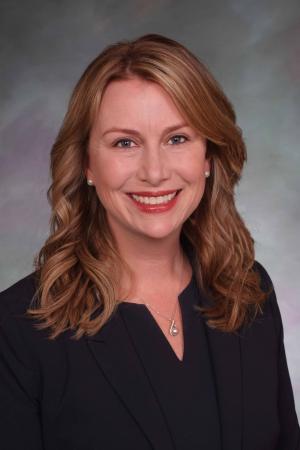An Interview with Catherine Strode

Last year, nearly one thousand cases of abuse against at-risk adults were reported in Colorado. In Denver, police report over a 200% increase in these types of crimes. Adult Protective Services estimate for every report of abuse against an at-risk adult, many more cases go unreported.
A Colorado legislator has introduced a bill to strengthen efforts to decrease crimes against at-risk adults. Senator Jessie Danielson is sponsoring Senate Bill 19-172 which makes it a Class 6 Felony to unlawfully confine an at-risk adult and a Class 1 Misdemeanor to unlawfully abandon an at-risk adult. Senator Danielson says this bill will cut down on this type of abuse of the most vulnerable Coloradans.
How did you come to be the sponsor on this bill?
I have worked on issues of elder abuse and at-risk adults since I was elected. Having worked on elder abuse issues and having promoted the rights of Coloradans with disabilities, it was a good fit. The issue of abandonment and confinement was brought to me by the District Attorneys (“DA’s”), area agencies on aging, and the senior lobby. This is something that is happening in our community. There are elder abuse statutes and statutes against at-risk adults. However, we are finding that these two particular types of abuse are not defined in statute as a crime. We need to define them as crimes so that the DA’s can go after the people who are responsible for this type of abuse and prosecute them. It attaches penalties to the crimes.
What kind of abuse does the bill specifically address?
There are two types of abuse we are defining in the bill. One is unlawful confinement; one is abandonment. Denver District Attorneys showed me a photograph of a room where a grandmother was being kept every day. They left this individual in a little room under the stairs in the basement. She was left with no food and no water, just a bucket. That is an example of unlawful confinement. When an at-risk adult is in the care of someone in this manner, we define it in the bill and attach a punishment to it. The purpose of this is to give law enforcement the tools to prosecute. It is also an attempt to deter people from committing the crime in the first place. The second thing in the bill is similar. People are leaving, abandoning, dumping people they no longer wish to care for. There was a high profile case picked up on the local news. This man was put on a plane and sent to Denver. When he got to DIA, there was no one to take care of him. He didn’t know who he was. Ultimately, he got picked up and ended up at a hospital. That is the type of abandonment happening that cannot be prosecuted under the current statute.
How do the bill’s amendments clarify the kind of caregivers it is targeting?
We don’t want to have any unintended consequences where good caregivers are somehow implicated in these crimes because that is not the intent. The intent is to find the people who are doing the most serious kind of abuse and prosecute them. Some of the language concerned the disability rights advocates and we have addressed their concerns. The concept of the amendments is clarifying anything they see as problematic, where someone could be accused of this crime when they are not committing it. We in no way want to implicate someone who has taken on the work of providing care in an ethical and caring way. When someone is a good quality caregiver, be they family or not, we want that care to continue. We don’t want to intimidate caregivers. We are not talking about safety measures in the home that are reasonable. We are talking about people who abandon their loved ones.
How does this impact the community of individuals with intellectual or developmental disabilities?
It impacts individuals with these types of disabilities because we say the crimes are against an at-risk person. What I have seen is heartbreaking because these are vulnerable people. For example, the case I described where the woman was kept under the stairs was one of the cases I reviewed to help with this bill. She was a nonverbal adult. When someone has an intellectual or developmental disability, they are disproportionately targeted for this type of abuse because they can’t stand up for themselves. They cannot tell someone what happened. It will have a positive impact in the sense that if this is happening to members of our community who have intellectual or developmental disabilities, we can stop it from happening because we can finally prosecute it. We can deter it from happening in the future because of the penalties we put in place. We do not currently give law enforcement the tools to stop it. That’s what we are doing. I think that is a crisis that needs to be solved. It’s less common than other forms of abuse. However, it is still happening. They need the legislature to do something about it.

Catherine Strode is Advocacy Denver’s Communications and Policy Specialist. She holds a Masters degree in Public Administration with an emphasis in Health Care Policy. Catherine publishes Policy Perspective, featuring interviews with state policy makers on issues that affect the work and mission of Advocacy Denver.